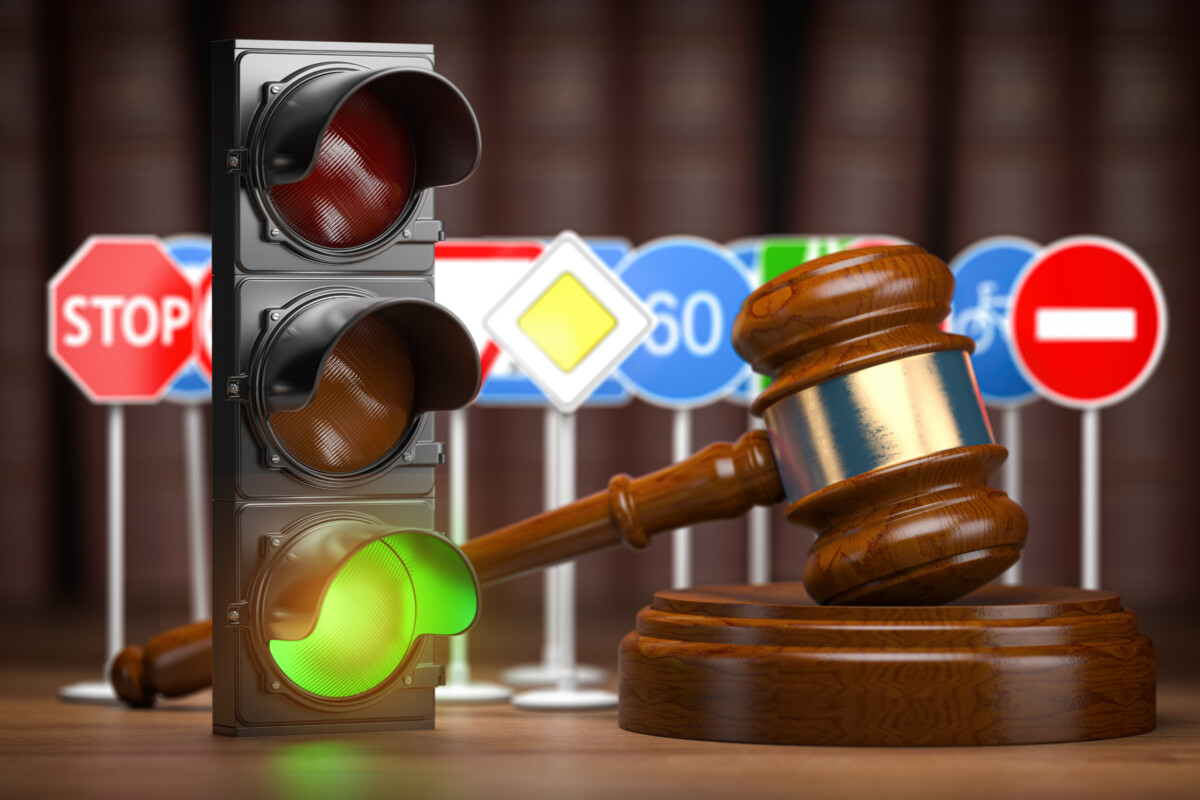NJ Motor Vehicle Accident Laws: Key Rules for 2025 Explained

Understanding NJ motor vehicle accident laws is essential for drivers in the Garden State. These laws dictate how accidents are managed, the responsibilities of drivers, and the rights of those involved. Familiarity with these regulations can help you navigate the complexities following an accident, ensuring you are informed and protected.
Understanding NJ Motor Vehicle Accident Laws
Key Aspects of NJ Motor Vehicle Accident Laws
No-Fault Insurance System
- New Jersey uses a no-fault insurance system, meaning your insurance covers medical expenses and lost wages, regardless of fault.
- This approach reduces minor accident lawsuits and simplifies the claims process.
Liability and Negligence
- If your injuries surpass a specific threshold, you can file a claim against the at-fault driver.
- The state employs a comparative negligence rule, which may reduce your compensation based on your share of fault in the accident.
Statute of Limitations
- You typically have two years from the accident date to file a personal injury lawsuit in New Jersey.
- Missing this deadline can forfeit your right to compensation, emphasizing the need for prompt action.
Statistics on Motor Vehicle Accidents in NJ
- In 2020, over 270,000 motor vehicle crashes were reported in New Jersey, with around 60,000 resulting in injuries. This underscores the importance of understanding NJ motor vehicle accident laws to safeguard your rights.
Key Legal Terms in NJ Motor Vehicle Accidents
Understanding nj motor vehicle accident laws is essential for anyone driving in New Jersey, as these laws dictate how accidents are managed and protect the rights of all parties involved. Familiarity with key legal terms can significantly aid in navigating the aftermath of an accident.
Negligence
- Negligence refers to the failure to exercise reasonable care, leading to harm. If you can prove another driver was negligent, you may be entitled to compensation for injuries and damages. For instance, a driver running a red light may be deemed negligent, impacting the case’s outcome under nj motor vehicle accident laws.
Comparative Negligence
- New Jersey employs a comparative negligence rule, meaning if you are partially at fault, your compensation may be reduced by your fault percentage. For example, if found 20% at fault with $100,000 in damages, you could recover only $80,000.
PIP (Personal Injury Protection)
- PIP is mandatory insurance that covers medical expenses and lost wages, regardless of fault. This coverage helps ease the financial burden of medical bills, allowing victims to focus on recovery.
Statute of Limitations
- The statute of limitations for personal injury claims in New Jersey is two years from the accident date. Failing to file within this period can forfeit your right to compensation, making it crucial to consult a legal professional promptly.
The Role of Insurance in NJ Motor Vehicle Accidents
Navigating the aftermath of a motor vehicle accident in New Jersey requires a solid understanding of insurance’s role. NJ motor vehicle accident laws aim to protect drivers and passengers, ensuring compensation for injuries and damages. Insurance serves as a crucial safety net, covering medical expenses, property damage, and lost wages.
Understanding Insurance Requirements in NJ
In New Jersey, drivers must carry minimum insurance coverage to ensure victims can receive compensation. Key components include:
- Liability Insurance: Covers damages to others if you are at fault, with minimums of $15,000 for bodily injury per person, $30,000 per accident, and $5,000 for property damage.
- Personal Injury Protection (PIP): Mandatory coverage for medical expenses and lost wages, regardless of fault, with a minimum of $15,000.
- Uninsured/Underinsured Motorist Coverage: Protects you if involved with a driver lacking sufficient insurance.
The Claims Process After an Accident
Filing a claim involves several steps:
- Report the Accident: Notify your insurer promptly with all necessary details.
- Gather Evidence: Collect relevant documentation to support your claim.
- File Your Claim: Ensure accuracy and completeness in your submission.
- Negotiate: Be ready to advocate for a fair settlement.
Statistics on Insurance and Accidents in NJ
In 2020, over 270,000 motor vehicle accidents were reported in NJ, with about 60% resulting in injuries. The average claim cost can exceed $15,000, underscoring the necessity of adequate insurance coverage. Understanding these aspects can significantly impact the aftermath of an accident.
Steps to Take After a Motor Vehicle Accident in NJ
Motor vehicle accidents can be stressful, particularly in New Jersey, where specific laws dictate how to handle these situations. Understanding NJ motor vehicle accident laws is essential for protecting your rights and ensuring proper compensation. Knowing the right steps to take immediately after an accident can significantly influence the outcome of your case.
After an accident, it’s crucial to remain calm and follow these steps for safety and legal protection:
1. Ensure Safety
- Check for injuries and call 911 if necessary.
- Move your vehicle to a safe location if possible.
2. Call the Police
- Report any accident resulting in injury, death, or property damage over $500.
- Obtain a police report for insurance and legal purposes.
3. Exchange Information
- Collect names, contact details, and insurance information from other drivers.
- Document the scene with photos of damages and conditions.
4. Notify Your Insurance Company
- Report the accident promptly and provide accurate details.
5. Seek Medical Attention
- Visit a doctor even if you feel fine, as some injuries may not be visible.
- Keep records of all medical visits related to the accident.
6. Consult an Attorney
- An experienced attorney can help you navigate NJ motor vehicle accident laws and assess your case for fair compensation.
Following these steps can help you effectively manage the aftermath of a motor vehicle accident and improve your recovery process.
Common Causes of Motor Vehicle Accidents in NJ
Motor vehicle accidents are prevalent in New Jersey, making it essential for drivers and pedestrians to understand NJ motor vehicle accident laws. These laws aim to protect the rights of individuals involved in accidents and ensure victims receive appropriate compensation. Being aware of common causes of accidents can help drivers remain vigilant and reduce their risk on the road.
Accidents can occur for various reasons, and recognizing these factors is vital for safe driving. Here are some leading causes in New Jersey:
Distracted Driving
- Texting or using a phone
- Eating or drinking
- Adjusting the radio or GPS Distracted driving is a significant contributor, accounting for over 25% of crashes in NJ, according to the New Jersey Division of Highway Traffic Safety. Staying focused is crucial to avoid these accidents.
Speeding
- Exceeding speed limits
- Driving too fast for conditions Speeding leads to severe injuries and fatalities, as reported by the NHTSA. It increases the risk of losing control and reduces reaction time to sudden changes in traffic.
Driving Under the Influence (DUI)
- Alcohol and drug impairment DUI remains a critical issue, with alcohol-related crashes making up nearly 30% of fatal accidents in NJ. Understanding the risks and penalties is essential for drivers.
Weather Conditions
- Rain, snow, and ice
- Reduced visibility Adverse weather significantly affects driving safety. The New Jersey Department of Transportation advises adjusting speed and following distance during bad weather, as weather-related crashes can increase by over 50% during severe conditions.
FAQs
Is NJ a no-fault state for car accidents?
Yes, New Jersey is a no-fault state, meaning your own insurance typically covers your injuries regardless of who caused the accident.
Is it worth suing someone for a car accident?
It can be, especially if your injuries or damages exceed your no-fault coverage limits or if another driver was clearly at fault.
What is the average car accident settlement in NJ?
Settlements vary widely, but average claims often range from $15,000 to $40,000 depending on injury severity and damages.
Can you sue for pain and suffering in NJ?
Yes, but only if your injuries meet certain severity thresholds under NJ’s no-fault law.
Final Thoughts
Understanding NJ motor vehicle accident laws is key to protecting your rights after a crash. While no-fault insurance covers many expenses, serious injuries may require legal action to secure fair compensation. Consulting an experienced attorney can help you navigate these laws and maximize your settlement.
Legal help is just one click or call away—visit LegalCaseReview.com or speak to an expert at 📞 (833) 279-1850.


